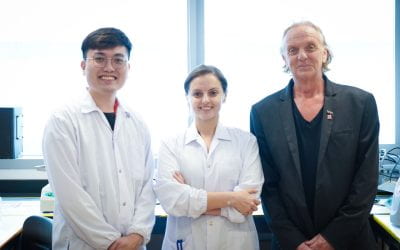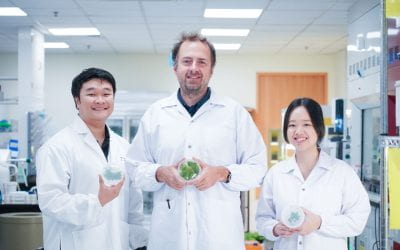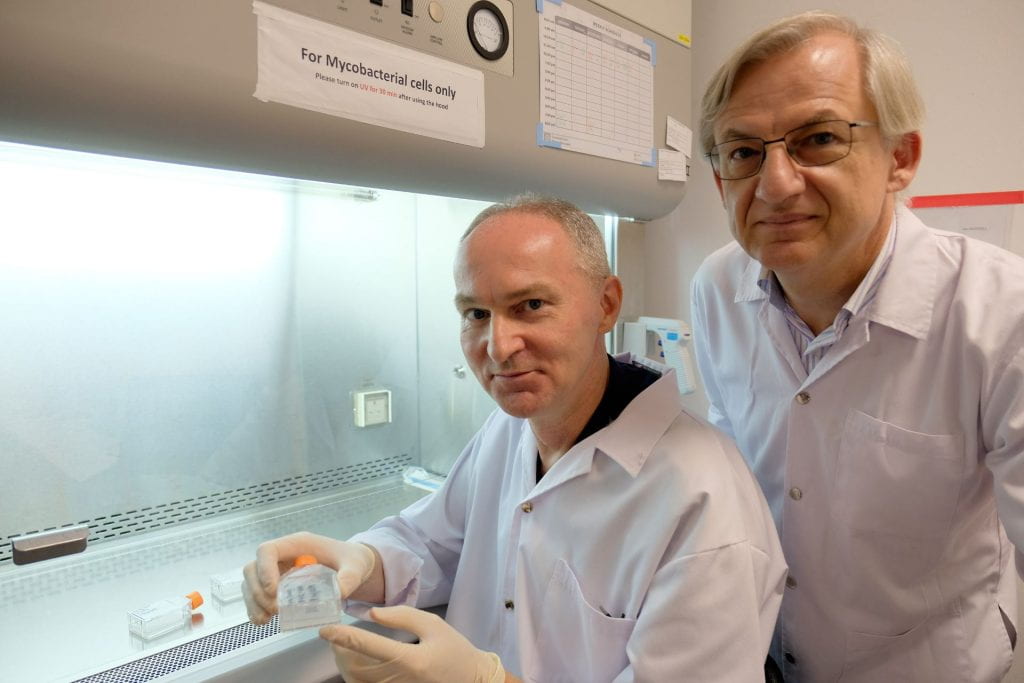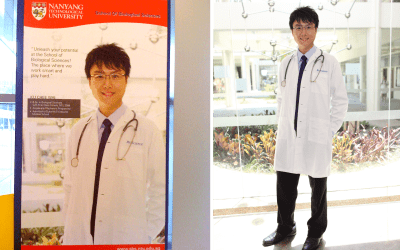A team of scientists from the NTU School of Biological Sciences have found that ponatinib, a drug approved by the US Food and Drug Administration (FDA) for the treatment of chronic myeloid leukaemia, has shown exceptional promise in stopping the growth of ALT-dependent cancerous cells.
Surviving the Elements: A New Understanding of Plant Stress Responses
A team of scientists from the NTU School of Biological Sciences have carried out research into how plants react to stressful conditions and devised a computational method that allows scientists to predict how plants will respond to complex environmental stresses. Their paper discussing their research and new computational method was recently accepted into the prestigious scientific journal, Nature Communications.
CoS welcomes Professor Kanaga Sabapathy, new Chair of SBS
The College of Science is delighted to extend a warm welcome to Professor Kanaga Sabapathy, who commences his appointment as the Chair of the School of Biological Sciences (SBS) today (1 June 2023). He is also the President’s Chair in Biological Sciences.
Oldenlandia corymbosa – a common plant valuable in the fight against cancer
A team of scientists from the NTU School of Biological Sciences (SBS), led by Associate Professor Marek Mutwil, have shown that ursolic acid present in extracts from O. corymbosa is active against breast cancer cells. In a paper published in the Journal of Integrative Plant Biology, the team also succeeded in assembling a high-quality genome of O. corymbosa, and uncovered two genes involved in the biosynthesis of ursolic acid – thus paving the way for developing this valuable compound.
Why Science@NTU? – School Spotlight: School of Biological Sciences
Still pondering if you should accept that programme offer from NTU College of Science? In this series, we shine a spotlight on the Schools of the College of Science and find out how they present their students with a meaningful and fun learning experience studying Science@NTU! Today, we shall take a look at the School of Biological Sciences (SBS).
Why Science@NTU? – Meet Carmen Tong!
Still pondering if you should accept that programme offer from NTU College of Science? We meet a few CoS students who share their exciting and fulfilling experience studying Science@NTU! Next up, we have Carmen Tong from the School of Biological Sciences, who’s also an NTU Science Scholar!
New genetic avenues for treatment in diffuse large B-cell lymphoma
A team of scientists from NTU SBS, led by Nanyang Assistant Professor Li Yinghui, have uncovered new areas along protein pathways in diffuse large B-cell lymphomas that are potential sites for targeted cancer treatments, thereby reducing the risk of cancer relapses or refractory occurrences in patients.
Combatting tuberculosis, the “captain of all these men of death”
Since the first antibiotic penicillin was discovered, it has been an arms race between humans and the pathogens that cause disease. The World Health Organization lists antimicrobial resistance as one of the top public health threats facing humanity. Especially...
Nanyang Outstanding Young Alumni Award 2022 Recipient: Sandhya Sriram (SBS)
Dr Sandhya Sriram graduated from NTU School of Biological Sciences (SBS) in 2013 with a Ph.D. in Research. She is now the Group CEO and Co-founder of Shiok Meats, the first cultivated crustacean company in the world and the first cultivated seafood and meat company in Southeast Asia. Congratulations!
Nanyang Outstanding Young Alumni Award 2022 Recipient: Ku Chee Wai (SBS)
Dr Ku Chee Wai, one of the proud and deserving recipients of the Nanyang Outstanding Young Alumni Award this year, graduated from NTU School of Biological Sciences (SBS) in 2009 with a B.Sc. in Biological Sciences (Accelerated). He is now an Associate Consultant in the Department of Reproductive Medicine, KK Women’s and Children’s Hospital and is also pursuing a PhD in Clinical And Translational Sciences with Duke-NUS Medical School.










